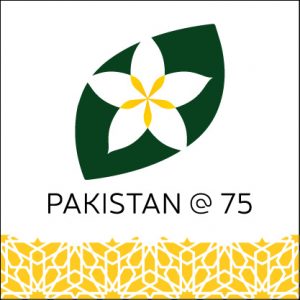 The recent controversy over the banning, and then limited release, of the globally acclaimed, award-winning movie ‘Joyland’ has opened up once again the place of the historic khawajasira community in Pakistan. Fatima Zahid Ali looks at the historical context of why their legal rights continue to be resisted, and how social media has become a platform to spread misinformation and hostility towards the community.
The recent controversy over the banning, and then limited release, of the globally acclaimed, award-winning movie ‘Joyland’ has opened up once again the place of the historic khawajasira community in Pakistan. Fatima Zahid Ali looks at the historical context of why their legal rights continue to be resisted, and how social media has become a platform to spread misinformation and hostility towards the community.
In Pakistan, the khwajasira is an overarching term for transgender, non-binary and gender non-conforming people, often referred to as the ‘third gender’. Historically, they draw their social esteem from early Islam as guardians of significant religious sites, and trace their history to pre-colonial India, functioning as political representatives, royal deputies, court functionaries, ritual performers, emissaries or as Sufi-informed identities. As a result of British notions of gender binaries and hetero-patriarchy, khwajasiras were criminalised, homosexual relations were banned, and ‘feminine’ clothing became a punishable offence for men, thus codifying gender norms in South Asia (Pamment, 2010; Hinchy, 2019). Under the Criminal Tribes Act (CTA) of 1871, certain communities were considered ‘criminal tribes’, and under Section 377 of the British Penal Code, sexual acts deemed ‘against the order of nature’ were banned and criminalised in colonial India. With seemingly everlasting effect, local perceptions toward gender, masculinities and morality reek of a colonial hangover which continues to marginalise transgender people.
Pakistan recognised the rights of transgender citizens by establishing the Transgender Persons (Protection of Rights) Act on 8 May 2018. Long overdue, the Act states that ‘trans people have the right to be recognised solely as per their self-perceived gender identity’, and that ‘[e]veryone is permitted to self-identify their gender without external authorisation’. A historic victory after decades of relentless struggle and blatant discrimination was welcomed by the community, including Bindiya Rana, a transgender woman and activist who told the Thomas Reuters Foundation in 2018 that ‘I feel as if an orphan has finally now found shelter’. Despite these legal wins and progressive transgender laws, transphobia and gender discourse on who is ‘allowed’ to use their chosen identities is cause for concern, emblematic of the dehumanisation of khwajasiras since colonial times.
Mehrub Moiz Awan is a khwajasira activist, academic and global policy practitioner with a strong interest in urbanism, governance reform in post-colonial states, and issues of gender and sexuality. As a social media celebrity, Mehrub enjoys a significant following on Twitter and Instagram, and is a prominent fixture in the Pakistani khwajasira community. She was slated as Guest Speaker at the TEDx ISL (International School Lahore) conference on 20 August 2022 but was removed from the panel following ‘objections by parents’ over her being a trans woman. The School claimed that parents had serious concerns with Mehrub being portrayed as a ‘role model to impressionable children’. In a series of tweets, Mehrub explained how this censorship stemmed from deeply rooted transphobia as her talk was intended to shed light on the racist colonial legacy of transphobia in Pakistan. In solidarity, other speakers of the panel boycotted the event including historian Ammar Ali Jan and educationist Ghazi Taimoor.
Mehrub’s visibility on social media meant that she faced a huge backlash, including from a local Pakistani fashion designer Maria Butt (also a concerned parent) who questioned Mehrub’s ‘right’ to be a trans woman. She applauded the private school for banning Mehrub’s talk, saying: ‘My kids are at ISL. And we as parents will decide who real role models are for our kids.’ In her next Instagram story, Maria writes: ‘This person is NOT from the KHWAJASARA community … love and respect for the khwajasara … HE is a MAN transitioning into a WOMAN in Pakistan … openly on social media!!! Our kids need to know the difference between genderless and trans community.’ These tirades went on as she weakly dabbled in gender discourse by (wo)mansplaining debates around transgenders and hermaphrodites. Various online news outlets covered the issue, and the majority sentiment in the digital publics was transphobic.
This begs the question: is there a class mindset within the élite bourgeoise and, by proxy, the Pakistani middle-class, that is unwilling to concede to transpeople their lawfully granted rights? Perhaps the answer is as simple as Mehrub says in one of her tweets: ‘It allows them to maintain their riches and hegemony in a highly unequal society, while hiding behind morality and public sensitivities.’ Coming to Mehrub’s defense, one user calls out the local fashion designer on Twitter saying: ‘Rich, cis woman becomes the gatekeeper of “trans-ness”: who is or isn’t the “real” Khawajasira & what are our kids learning? — this season’s gender discourse collection by Maria B.’ The narrative changed slightly when both the school and the designer stood corrected that blocking Mehrub from TED’s platform was the right choice due to Mehrub being ‘abusive’, ‘vulgar’ and ‘inappropriate’. One user on Instagram commented: ‘Not a fan of Maria B but gotta applaud her here. I was once a follower of Moiz but the unnecessary use of vulgarity and profanity was nauseating.’ On the other hand, many online users who were shocked at the fashion designer’s comments were quick to defend Mehrub, and boycotted the designer.
Zooming in on how online publics interact on platforms like Twitter, YouTube and Instagram, this incident also contributes to the often misunderstood discourse on gender binaries, transphobia and extreme moral policing towards marginalised communities in post-colonial South Asia. This sentiment is echoed in one tweet: ‘You are not a trans person, you are male who choose to “come out” as a female. There is a difference.’ Another read: ‘My respect for TED increased 100 times today. What a great precedent they set for every Muslim and Pakistani.’ There are a plethora of quintessentially self-righteous tweets, comments, posts, and stories on Twitter and Instagram which border on moral panics, far-right Islamist ideologies and the ‘othering’ of khwajasiras. These digital practices are based on certain cultural assumptions of who can be trans and how they can be trans in hetero-patriarchal and anti-feminist social structures.
*
Given the fact that Mehrub’s speech was censored from the TED talk, I took a closer look at her draft (which she made available online), where she eloquently and unabashedly gives a much-needed lesson in History on gender-variant people in South Asia, the history of the Criminal Tribes Act, British police bureaucracy which popularised terms like ‘eunuchs’ and ‘sodomy’, the trials and tribulations from her own life, and coming to terms with the beauty of diversity. Contrary to popular belief, there was not a single ‘vulgar’ word in sight! But it certainly makes one hope for inclusion, for which many khwajasiras yearn. Transphobic discourse has enabled misinformation at the hands of the so-called élite and liberal fractions of society. For example, ‘[…] there is a massive difference between khwajasira and transgenders’; ‘transgender act is just a “hot topic” now’; and ‘[…] who is the most famous transgender in the world? Kim Kardashian’s father and now he became her mother. I think his name is Caitlyn Jenner!’ (Comments by Maria B., Source: Instagram video, posted 23 September 2022). In a similar vein, there are numerous social media texts that try to undermine the community by suggesting offensive disparities between the terms ‘intersex’ and ‘transgender’, and policing on biology and appearances, as opposed to the spiritual soul — which is central and often synonymous to khwajasirayat and indigeneity.
In November 2022, the critically acclaimed film Joyland (directed by Saim Sadiq) was banned for release in Pakistan one week before it was due to be released, following backlash from hardline Islamic religious groups. As a winner at the 75th Cannes Film Festival in the Un Certain Regard section and Queer Palm 2022 Prize for the best LGBT, ‘queer’ and feminist-based film, ‘Joyland’ has received positive reviews from international critics and has been lauded in global film festival circuits. Set in Lahore, the film narrates the story of Haider, a young married man from a middle-class family, who joins an erotic dance troupe and falls in love with Biba, a transgender performer, played by the brilliant Alina Khan. She is the first transwoman to star in a major Pakistani motion picture that features a transgender actor in a lead role. Mehrub accurately points out in a tweet: ‘Reminder, had a cisgender woman or man instead of Aleena [sic] Khan played the role of a khwajasira dancer, they’d have had no issues with it. But because it’s an actual khwajasira doing so, they have issues. They want khwajasira people to be just begging in the streets.’ Traditionally, the portrayal and representation of khwajasiras in Pakistani film or media has been through one-dimensional stories punctuated with sarcasm, ridicule, humour for comic relief, or as classic tropes of the punching bag!
Awaiting its theatrical release and greenlit by the government’s Film Censor Board, ‘Joyland’ was held back due to pressure from hardline Islamic groups. Mushtaq Ahmad Khan, a Senator from the Jamaat-e-Islami (JIP) political party declared the film as ‘highly questionable’, ‘repugnant to the norms of decency and morality as laid in Section 9 of Motion Picture Ordinance 1979’ and accused the film of ‘promoting’ homosexuality. Following this, a ‘paid smear campaign‘ began on social media, with #BanJoyland trending on Twitter in Pakistan — spreading misinformation, pointed out by Sarwat Gilani (an actor in ‘Joyland’), in a series of tweets accusing the authorities of caving into pressure from ‘malicious people’ and issuing a public appeal to #ReleaseJoyland.
Online users apply intertextuality and interdiscursivity (Fairclough, 2003) by using religious texts and symbols to legitimise religious nationalism, transphobic sentiments and mainstreaming radical rhetoric. Social media posts for #BanJoyland validates the notion that using digital communities to divulge ideological messages provides a new set of tools for multimodal forms of persuasion (Pettersson & Sakki, 2017). The performance of piety and hyper-religiosity is employed by one such right-wing YouTuber, a self-proclaimed ‘Maulvi with an Attitude’ whose recent claim to fame is hate speech against the khwajasiras and the intentional appropriation of the trans struggle as a ‘Western LGBT agenda’, disguising it, often poorly, as motivational content aimed at the youth.
After an eight-member committee was set up by the Prime Minister to deliberate on complaints against ‘Joyland’, it was concluded that the Central Board of Film Censors (CBFC) will conduct a full board review to decide on the film’s screening. As of November 2022, the film is screening in select parts of the country; ironically, it remains banned in Punjab, where the story of ‘Joyland’ is set. In cities where the film was released, audiences urged everyone to watch it and agreed that the attacks against the movie were entirely groundless. Furthermore, on the occasion of the annual Transgender Day of Remembrance on 20 November (which honours and commemorates trans people murdered during the year), the khwajasira community held its first Sindh Moorat March (#SMM2022) organised by the Gender Interactive Alliance (GIA), made possible by grassroots trans activists Shahzadi Rai and Hina Baloch. As an indigenous, anti-colonial political movement and local trans pride, the march was supported by allies, donors, volunteers, the media, artists, activists, and social media campaigners. (The 12 demands of the Sindh Moorat March are outlined in this post on Twitter.)
It is also worth mentioning that when movements resonate far beyond its original borders, and get reinterpreted/replicated in local contexts, we have transnational outcomes such as the Moorat March adopting the Persian slogan ‘Zan, Zindagi, Azadi’ (‘Woman, Life, Freedom’) to show solidarity with women in Iran. As one of the organisers of the march, Hina Baloch — reiterating that transphobia is a colonial legacy — said in an interview: ‘For decades, we were denied basic rights and now whatever rights that have been given are being snatched. On top of this, a media trial and disinformation campaign has been running in the country against us, resulting in more violence.’
To that end, the myth of the rigid gender binary is not only fairly recent but also a Eurocentric perspective that oversimplifies reality — all the more harmful in post-colonial societies like Pakistan. As an ally, moving past this normative approach means resisting heteropatriarchal norms, supporting local trans communities, subverting stereotypical views of masculinities and femininities, and actively working towards a shift in the cultural landscape through better trans representation in all echelons of Pakistani society. I quote a slogan in support of transwomen from the Sindh Moorat March: ‘Support your Sisters. Not just your Cisters.’
The views expressed here are those of the author and not those of the ‘South Asia @ LSE’ blog, the LSE South Asia Centre or the London School of Economics and Political Science.
Banner image © Alexander Grey, ‘Transgender Letters for Gender Identity’, 5 March 2020, Unsplash.
The ‘Pakistan @ 75’ logo is copyrighted by the LSE South Asia Centre, and may not be used by anyone for any purpose. It shows the national flower of Pakistan, Jasmine (Jasminum officinale), framed in a filigree design adapted from Islamic architecture. The logo has been designed by Oroon Das.








It truely is rare to find such well articulated pieces. Great read!